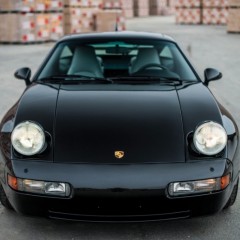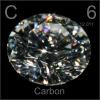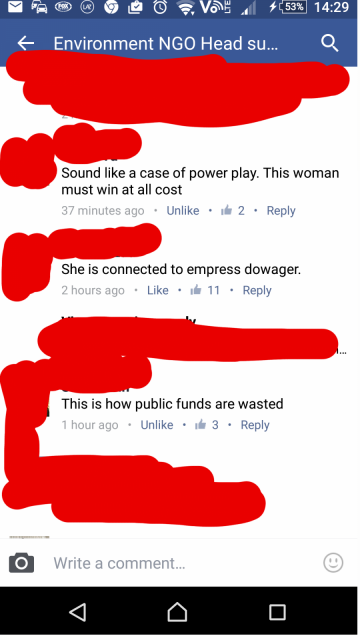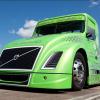Search the Community
Showing results for tags 'Environment'.
-
Look like Elon Musk is taking a leaf out from LTA's COE scheme. $2.1 billion earned in 9 month just for doing nothing. 🦾🦿🦾 @inlinesix I know you like to quote Tesla everytime when the topic of dealer's profits were raised. It's time to rethink if Tesla's strategy is sustainable in long term...
- 16 replies
-
- 6
-

-
.png)
-
Bill on plastic bag charge tabled, shoppers to pay 5 cents or more at most supermarkets from mid-2023 SINGAPORE – From mid-2023, shoppers at most supermarkets will need to pay at least five cents for each disposable carrier bag. Two-thirds of all supermarket outlets in Singapore – includin...
- 676 replies
-
- 16
-

-

-

-
- plastic bag
- environment
-
(and 2 more)
Tagged with:
-
Disclaimer: I don't hold anything against freegans, but if they are overly desperate in hunting for free stuff and even work lesser, the line may be crossed. If everyone stop spending, will the world not stop moving? Afterall, all these free stuff come for someone else pocket, and I wonder if...
- 87 replies
-
- 15
-

-

-
.png)
-
- 34 replies
-
- 5
-

-
.png)
-
plastic bags and other container i can understand but no straw and cup lids? they probably need more cleaners to clean up more mess.
- 429 replies
-
- 4
-

-
- straw
- environment
-
(and 4 more)
Tagged with:
-
The truth? The lies? Are we blindly jumping on the bandwagon and dropping off the cliff? Be careful who we are sleeping with. I think its a good time to watch this long video and make our own judgement. We can wake up or we can say its all bulls**t.
- 7 replies
-
- 2
-

-
- green
- environment
-
(and 3 more)
Tagged with:
-
Safety Moment is a tool, used by some companies, to maintain a high level of awareness towards Environmental, Health and Safety (EHS) issues, often in relation to the company operations. It involve the sharing of an EHS topic, usually by safety representative within the team, prior to the start...
- 85 replies
-
- 23
-

-
As a car lover, I seriously don't know if I should laugh or cry. Former ‘Top Gear’ host Jeremy Clarkson says ‘idiot’ climate activist Greta Thunberg has killed the car show Jeremy Clarkson blames “idiot” climate change activist Greta Thunberg for killing the car show. The fo...
- 3 replies
-
- 7
-

-
.png)
-
- jeremy clarkson
- greta thunberg
-
(and 3 more)
Tagged with:
-
Hi, wondering if anyone here park before at the environment building at scott road before?
-
Hello, Thank you for your interest in this post. Any expert in shipyard industry with lots is exposure of their car in spraying painting and sand blasting environment can advice if these glass coating and protective film is of any use. If do glasscoating can still Claybar or what more advance th...
-
http://www.theonlinecitizen.com/2016/10/15/environment-ngo-head-suspended-from-official-duties/ I like these people commented in Facebook. They sums things up. Look like Ms Loh also need to be suspended for investigation to see if she got anyhow abuse her power.
- 46 replies
-
- ngo
- enviroment
-
(and 4 more)
Tagged with:
-
Got a friend that is contemplating buying a car but is a bit put off by the high cost of owning a car nowadays. After he read about carpooling and that he could probably defray his cost by at least a few hundreds he is abit more assured now. With a baby coming his way, he wasn't too sure if he c...
- 93 replies
-
- toyota
- toyotacarpooling
- (and 6 more)
-
https://sg.news.yahoo.com/video/rat-infestation-blankets-ground-near-224930374.html Another symptom of deteriorating living environment with the wholesale import of people..... and people sleeping on the job until kena face-booked.
- 311 replies
-
- 3
-

-
- town council
- rats
-
(and 5 more)
Tagged with:
-
Source: The Straits Times HAVING more greenery does not always help to protect against climate change, a team of Singapore scientists has found. A three-year study in Telok Kurau yielded the surprising fact that the greenery there emits more carbon dioxide (CO2) than it absorbs, the scientis...
- 17 replies
-
- greenery
- carbon dioxide
-
(and 6 more)
Tagged with:
-
You would never think that a single plant could solve most of the world's problems, well it can. Hemp has over 50,000 uses, everything from clothes, medicine, fabrics, fuel and more, hemp is definitely a large threat to a variety of corporations that control energy, health and a number of other indu...
- 3 comments
-
- eco-friendly
- eco-friendly car
- (and 6 more)
-
Hope this will pass on to any cancer patients. True or not, no harm trying since it is better to believe it than nothing. Alkaline Diet for Cancer: Cancer Cells Cannot Survive In an Alkaline Environment Maintaining a diet that promotes an alkaline pH within the body is good protection...
-
http://www.msnbc.msn.com/id/44230562/ns/wo...ld_environment/
- 2 replies
-
- Singapore
- environment
-
(and 1 more)
Tagged with:
-
Every driver is aware of Sinkie land's UNIQUE driving conditions because of our UNIQUE PAP govt. Its definitely not designed for performance cars which cannot tolerate long idling times in blistering heat, and average speeds of 30kph on our expressways....So what kind of car is best suited for our U...
- 40 replies
-
- Recommended
- Car
-
(and 2 more)
Tagged with:
-
Anyone got any idea? i know that GIC financial arm is the creme de la creme. but their IT leh? job satisfaction/renumeration/environment etc etc
-
Of course, each has its disadvantages... [please add to the list if you know something about it] CNG - ADV 1.gaining recognition as a cleaner and cheaper fuel (emits lesser greenhouse gases) 2. 3. - DISADV 1.possible LEAKAGE/UNBURNT METHANE!!!(main component of CNG) which is 20 times MOR...
-
Just to let everyone know I'm now with RTMT instead Ford... eddie
















